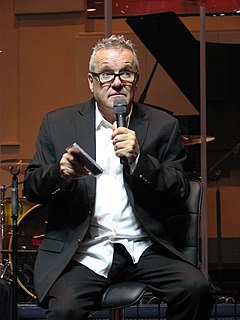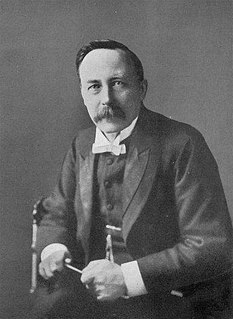A Quote by George MacDonald
Primarily, God is not bound to punish sin; he is bound to destroy sin. The only vengeance worth having on sin is to make the sinner himself its executioner.
Related Quotes
Sannyas is celebration of life, and sin is natural: natural in the sense that you are unconscious - what else can you do? In unconsciousness, sin is bound to happen. Sin simply means that you don't know what you are doing, you are unaware, so whatsoever you do goes wrong. But to recognize that "I am a sinner" is the beginning of a great pilgrimage. To recognize that "I am a sinner" is the beginning of real virtue. To see that "I am ignorant" is the first glimpse of wisdom.
Our own theory is that sin was ordained only in view of redemption, and that accordingly redemption shows forth as the gain bound up with sin; in comparison with which there can be no question whatever of mischief due to sin, for the merely gradual and imperfect unfolding of the power of the God-consciousness is one of the necessary conditions of the human stage of existence.
We tend to speak of sin in very personal and individual terms. Jeremiah does not downplay that, but he also sees how a whole society can be bound up in the tentacles of sin, in the assumptions that everybody around you makes, about how it becomes easier to sin than not to, and how we can become so confused and contradictory in our reactions, when sin is pointed out.
God has decided the rules of life, whereby you don't trespass on anybody else's rights, and sin is something that upsets the balance of things. There are three types of sin: sin against yourself; sin against other people; and sin against God. People often sin against themselves and others and misbehave with God, too.
The cliché, God hates the sin but love the sinner, is false on the face of it and should be abandoned. Fourteen times in the first fifty Psalms alone, we are told that God hates the sinner, His wrath is on the liar, and so forth. In the Bible, the wrath of God rests both on the sin (Romans 1:18ff) and on the sinner (John 3:36).
We've fallen for the devil's lie. His most basic strategy, the same one he employed with Adam and Eve, is to make us believe that sin brings fulfillment. However, in reality, sin robs us of fulfillment. Sin doesn't make life interesting; it makes life empty. Sin doesn't create adventure; it blunts it. Sin doesn't expand life; it shrinks it. Sin's emptiness inevitably leads to boredom. When there's fulfillment, when there's beauty, when we see God as he truly is-an endless reservoir of fascination-boredom becomes impossible.






































